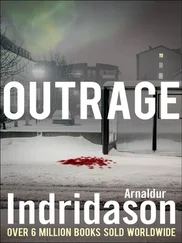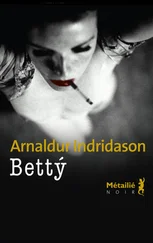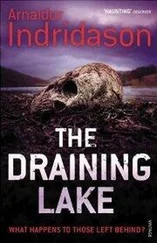Arnaldur Indridason - Black Skies
Здесь есть возможность читать онлайн «Arnaldur Indridason - Black Skies» весь текст электронной книги совершенно бесплатно (целиком полную версию без сокращений). В некоторых случаях можно слушать аудио, скачать через торрент в формате fb2 и присутствует краткое содержание. Год выпуска: 2012, ISBN: 2012, Издательство: Random House UK, Жанр: Полицейский детектив, на английском языке. Описание произведения, (предисловие) а так же отзывы посетителей доступны на портале библиотеки ЛибКат.
- Название:Black Skies
- Автор:
- Издательство:Random House UK
- Жанр:
- Год:2012
- ISBN:9781446485026
- Рейтинг книги:5 / 5. Голосов: 1
-
Избранное:Добавить в избранное
- Отзывы:
-
Ваша оценка:
- 100
- 1
- 2
- 3
- 4
- 5
Black Skies: краткое содержание, описание и аннотация
Предлагаем к чтению аннотацию, описание, краткое содержание или предисловие (зависит от того, что написал сам автор книги «Black Skies»). Если вы не нашли необходимую информацию о книге — напишите в комментариях, мы постараемся отыскать её.
Black Skies — читать онлайн бесплатно полную книгу (весь текст) целиком
Ниже представлен текст книги, разбитый по страницам. Система сохранения места последней прочитанной страницы, позволяет с удобством читать онлайн бесплатно книгу «Black Skies», без необходимости каждый раз заново искать на чём Вы остановились. Поставьте закладку, и сможете в любой момент перейти на страницу, на которой закончили чтение.
Интервал:
Закладка:
These days he lived in a small rented flat on Framnesvegur, a quiet residential street in the west of town. When he had moved out after living with Bergthóra for several years, they had divided up their possessions — books, CDs, kitchenware and furniture — in a civilised fashion. He had coveted the plasma screen, she the painting by a young Icelandic artist given to them as a present. She had never watched much television and could not understand his passion for American sports. His new flat still felt rather bare as he had not yet had time to furnish it properly, perhaps hoping deep down that his relationship with Bergthóra could be salvaged.
They had quarrelled over and over again until they could barely speak without losing their tempers and descending into mutual recrimination. Towards the end she had accused him of failing to give her enough support when she suffered her second miscarriage. They had been unable to have children and their attempts to solve the problem medically had ended in miserable failure. Afterwards, when she broached the subject of adoption, he had been ambivalent, before eventually coming right out and saying that he did not want to adopt a child from China as she had proposed.
‘What’s left then?’ Bergthóra had asked.
‘The two of us,’ he had replied.
‘I’m not so sure,’ she had said.
In the end the decision to separate had been mutual; their relationship had run its course. They both recognised the fact and knew that the blame lay on both sides. Once the decision had been taken, things seemed to improve; the strain they had been living under eased noticeably and their interaction was no longer as fraught or filled with anger. For the first time in ages they could have a conversation without it ending in bitterness and silence.
When the phone rang he was lounging on the sofa in front of the big screen, drinking orange juice and absorbed in the American football. Glancing at his watch, he discovered that it was past midnight, and peered at the number that flashed up on his phone.
‘Hello,’ he said.
‘Had you gone to bed?’ his mother asked.
‘No.’
‘You don’t get enough sleep. You should go to bed earlier.’
‘Then you’d have woken me.’
‘Oh, is it that late? I thought you might call me. Have you heard from your father?’
‘No,’ Sigurdur Óli replied, trying not to miss what was happening on-screen. He knew his mother was perfectly aware of the time.
‘You remember he’s got a birthday coming up.’
‘I won’t forget.’
‘Are you going to drop round and see me tomorrow?’
‘Well, I’ve got a lot on but I’ll see if I can make it. Let’s talk later.’
‘It’s a pity you didn’t catch the thief.’
‘I know. It didn’t work.’
‘Perhaps you could try again later. Gudmunda’s quite distraught about the whole thing, especially the unfortunate business with that musician on her staircase.’
‘Yes, well, we’ll see,’ Sigurdur Óli said, reacting less than enthusiastically to the suggestion. What the hell did he care about Gudmunda’s feelings? he thought, though he did not say this aloud.
Once his mother had rung off he tried to concentrate on the game again but with only partial success. The call had upset him. Short though it was, and innocuous though it had seemed, it had left his whole body racked with guilt. His mother had a peculiar knack of expressing things in a manner designed to ruin his peace of mind. It was the tone of concealed accusation, the hint of bossiness. He did not get enough sleep, therefore he was not taking proper care of his health; he had not been in touch with her, either by phone or in person, and all this was underlined by her mention of his father, whom he also neglected. And to cap it all she had drawn attention to the fact that he had failed to catch the newspaper thief and was therefore as ineffectual in that as he was in everything else.
His mother had a degree in business studies and worked as an accountant at a large firm with an impressive-sounding foreign name. She held a position of some responsibility, took home a good salary and had recently embarked on a relationship with another accountant, a widower called Saemundur, whom Sigurdur Óli had encountered several times at her house. Sigurdur Óli had been at primary school when his parents divorced and had grown up with his mother. She had been restless during those years and kept moving to new neighbourhoods, which made it difficult for him to settle and make friends at school. She had also struck up short-term relationships with a number of men, some no more than one-night stands. His father, on the other hand, was a plumber with fixed political views; a staunch socialist who loathed the conservatives and the vested interests they defended tooth and nail — the party his son always voted for, in spite of him.
‘No one has stronger or more legitimate political convictions than the far left,’ his father would claim. Sigurdur Óli had long ago given up trying to discuss politics with him. When he refused to change his views, the old man used to say that he had inherited his right-wing snobbery from his mother.
His concentration ruined by the phone call, Sigurdur Óli gradually lost interest in the game until at last he switched off the television, retired to bed and went to sleep.
Now he heaved a sigh and pressed Lína’s doorbell again.
The accountant and the plumber.
He had never managed to find out what had brought his parents together. Why they had parted seemed far more obvious, though neither father nor son had ever received a proper account. It was hard to imagine a more mismatched couple than his parents. And he, an only child, was their offspring. Sigurdur Óli understood that his outlook must have been coloured by the upbringing he had received from his mother; his attitude to his father for example. His sole wish had long been to be as different from him as possible.
His father never tired of bringing up another snobbery-related trait that Sigurdur Óli had inherited from ‘that woman’, and that was his arrogance, his tendency to look down on people. Especially the unfortunates at the bottom of the social heap.
Since no one was answering the bell, he tried knocking on the door. He still hadn’t a clue how he was supposed to persuade Lína and Ebbi to give up their absurd attempt at blackmail, but at least he could start by hearing what they had to say. Perhaps the whole thing was a misunderstanding on Hermann’s part. If not, perhaps he could scare them into abandoning their plans; Sigurdur Óli could be quite intimidating when the situation required it.
In the event he did not have much time to wonder. The door gave way under his knock, opening inwards. After hesitating, he called out to see if anyone was at home. There was no answer. He could have turned round and left but something drew him into the house; innate curiosity, perhaps, or innate lack of consideration.
‘Hello!’ he called, entering the short hallway that led from the front door, past the kitchen to the sitting room. A small framed watercolour hung askew on the wall by the kitchen door and he automatically straightened it.
Inside, the house was dark, lit only by the faint glow of the street lights, but this was enough to show Sigurdur Óli that the sitting room had been trashed. Lamps and vases lay smashed on the floor, the ceiling lights were broken and pictures had been knocked off the walls.
Amid all the chaos and destruction, Sigurdur Óli caught sight of a woman lying on the floor in a pool of blood, with a large gash in her head.
This, he assumed, must be Lína.
6
He checked for signs of life and could find none, but being no expert, he rang for an ambulance before it occurred to him that he would have to explain his presence in the house. He considered some plausible lie; an anonymous tip-off, perhaps, but then decided to tell the truth; that friends had asked him to go round in connection with a foolish attempt at blackmail. He was anxious to keep Patrekur and Súsanna out of the matter, as well as Súsanna’s politically ambitious sister, but knew it would be tricky. Their connection to Lína and Ebbi would come to light as soon as the investigation got off the ground, and another thing was certain: the moment Sigurdur Óli explained why he had been at the house, he would be taken off the case.
Читать дальшеИнтервал:
Закладка:
Похожие книги на «Black Skies»
Представляем Вашему вниманию похожие книги на «Black Skies» списком для выбора. Мы отобрали схожую по названию и смыслу литературу в надежде предоставить читателям больше вариантов отыскать новые, интересные, ещё непрочитанные произведения.
Обсуждение, отзывы о книге «Black Skies» и просто собственные мнения читателей. Оставьте ваши комментарии, напишите, что Вы думаете о произведении, его смысле или главных героях. Укажите что конкретно понравилось, а что нет, и почему Вы так считаете.












